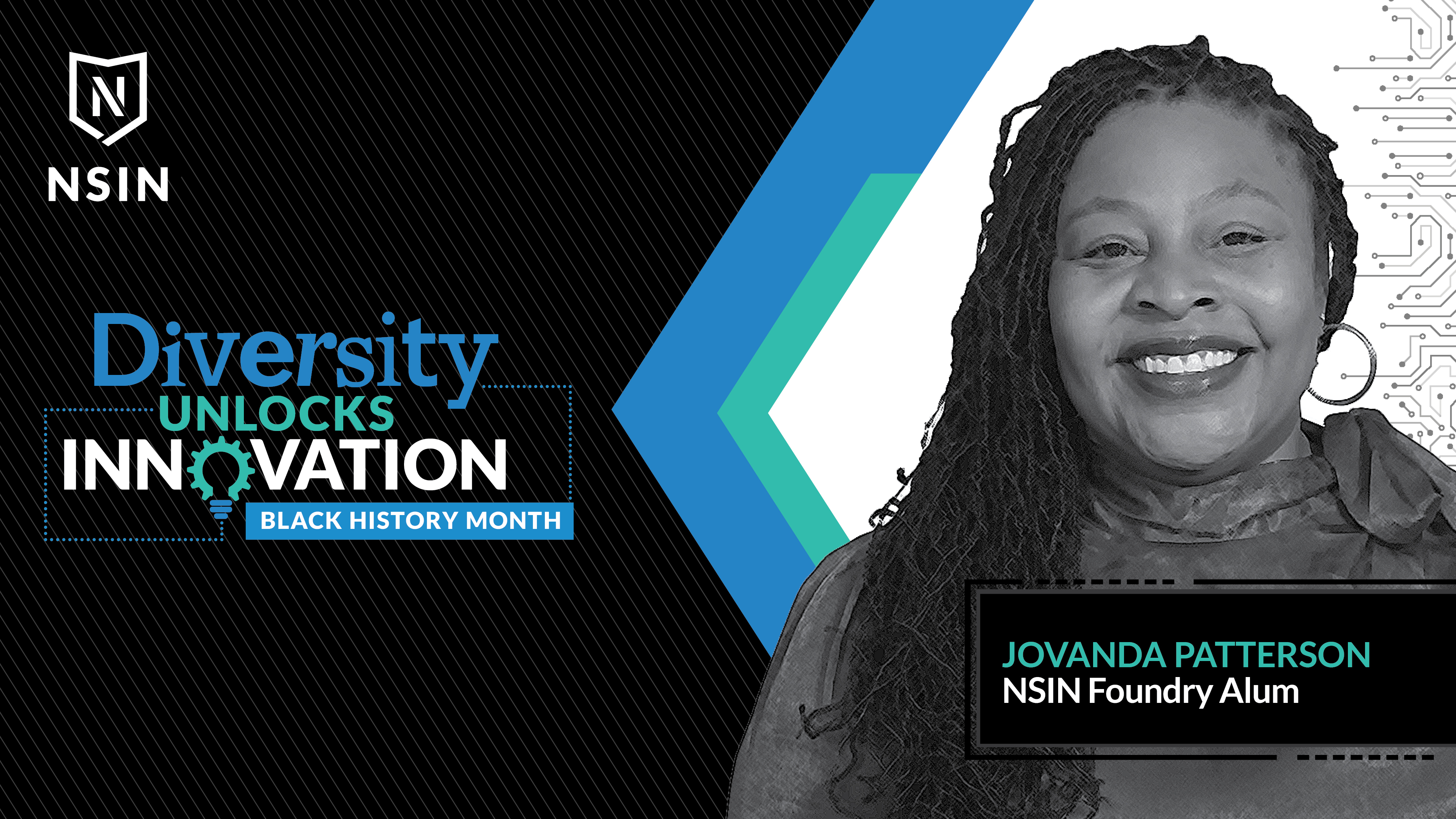
Jovanda Patterson - Emerging Leader


NAME: Jovanda Patterson
NSIN AFFILIATION: NSIN Foundry Alum
AFFILIATION: UMASS Global MSW Student
STATE: California
Q: Who/what inspired you to get involved in an NSIN defense innovation program?
I was inspired to get involved with the NSIN defense innovation program by a fellow respected and trusted program participant alumnus, Pierce Robinson.
Q: What advice would you offer to others about pathways to national service and working with the Department of Defense?
My advice to anyone contemplating or currently going through working with DoD is stay the course. It will be difficult and frustrating at times, but hard work and determination will see you through. I would also ask them to think outside the box. An invention is just that -- an invention -- but its substance is bred through the belief that we give it.
Q: In your experience, how has diversity, or the lack of diversity, affected a team's ability to generate creative ideas and solve problems?
In my case, diversity in both life experiences, work skills, and race have played a vital role in our success. Each member coming from different walks of life being opened minded to change has allowed us to see every problem from every angle. In the past, in both government and the civil sector, the lack of in diversity caused mistrust, discrepancies, and an unheard voice of the nation.
Q: If you could go to dinner with any Black historical figure, dead or alive, who would it be and why?
If I could go to dinner with any Black historical figure, it would be poet, author, and lecturer, Frances Ellen Watkins Harper. Mrs. Watkins was not only the first African American woman to publish a short story, but she was also an influential abolitionist, suffragist, and reformer that co-founded the National Association of Colored Women’s Clubs. Her famous speech entitled, “We Are All Bound Up Together,” urged her fellow attendees to include African American women in their fight for suffrage. She emphasized that Black women were facing the double burden of racism and sexism at the same time, therefore the fight for women’s suffrage must include suffrage for African Americans. I would commend her for seeking equality even when she felt every man’s hand against her. I would applaud her for keeping hope in times of struggle and adversity. I would thank her for challenging me and so many others to be brave, courageous, insightful, prayerful, and full of grace despite the toils for we are not just women but black women who carry great burdens, yet we rise.
Q: Why is it important to learn about Black history and what does it mean to you?
Black history is important as it reminds us not only who we are but where we have been. Our history tells us that tomorrow is more than a promise, but an inheritance. Our history reflects the strength and intelligence we carry and shows us to never be ashamed of who we are.